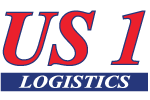What is the Future of Owner Operators in Transportation?
That may sound like a strange question but we think it is a valid one.
For years owner operators have represented the independent small business operator in the  transportation industry. Being an independent contract has been the dream of many a company driver. Being about to stop working for the company and starting your own small business with the skills you learned through your hard work and dedication has been the light at the end of the rainbow for many a company driver in the transportation industry.
transportation industry. Being an independent contract has been the dream of many a company driver. Being about to stop working for the company and starting your own small business with the skills you learned through your hard work and dedication has been the light at the end of the rainbow for many a company driver in the transportation industry.
Owner operators have been such an importance that even the transportation companies have made the process easier over the years by offering lease purchase programs to allow a company driver to get into their first truck. Yes, sometimes those lease purchase programs have not been very fair to the new owner operator. In fact, some have out right taken advantage of the drivers making the lease purchase program so unfair that there was either no real way to pay the truck off or making it impossible to make enough money to make the payments and save for repairs.
But, even with these sometimes predatory lease purchase programs, overall the trucking  companies and even the industry has benefited from owner operators. Many times, the new owner operator may have to go to their second lease purchase program before they find the right company but once they do they can achieve their dream of being an small business owner.
companies and even the industry has benefited from owner operators. Many times, the new owner operator may have to go to their second lease purchase program before they find the right company but once they do they can achieve their dream of being an small business owner.
With all the good owner operators have done for the industry what is the long term future of independent contractors in the transportation industry? No one knows for sure, but there are some worrying things going on.
First of all some states such as California have made it almost impossible for a carrier to classify an owner operator as an independent contractor. California and other states have had their labor department’s reclassify owner operators for workman’s compensation effectively making the owner operator an employee. This has even extended as far as labor practices concerning the hiring or cancelling of owner operators from the carriers.
Some of this is the owner operators fault because they have petitioned for workman’s compensation coverage even though they were an independent contractor. In these cases some owner operators are actually working against the very transportation model they are part of.
The Internal Revenue Service (IRS) has gotten into the discussion from time to time hoping to  reclassify owner operators as employees so they may collect payroll taxes on the owner operator and make overall tax collection easier. As an independent contract the owner operator has to pay quarterly taxes which some operators do not properly prepare for resulting in tax liabilities. The IRS would prefer to tax the owner operators as an employee so that taxes are taken out of each check by the company.
reclassify owner operators as employees so they may collect payroll taxes on the owner operator and make overall tax collection easier. As an independent contract the owner operator has to pay quarterly taxes which some operators do not properly prepare for resulting in tax liabilities. The IRS would prefer to tax the owner operators as an employee so that taxes are taken out of each check by the company.
Increasing Department of Transportation (DOT) rules are requiring transportation companies to manage more and more of the owner operator’s daily activities which would seem to go against the IRS rules which stipulate that an owner operator must be independent. As trucking companies try to balance DOT and IRS guidelines the differences between and employee and independent contractor has become more and more muddy.
The future of owner operators being independent is cloudy to say the least. The DOT requires control and the IRS says control makes an owner operator an employee. This does not even include the attack on the independence of contractors by state labor boards concerned with hiring and firing practices and workman’s compensation.
If you are currently an owner operator, be sure to stand up for your independence as a small business owner to the state and federal agencies which seek to take it away from you. Write your congressmen and tell them that you want to remain independent!
If you are looking for a good owner operator based company – CLICK HERE.


Recent Comments